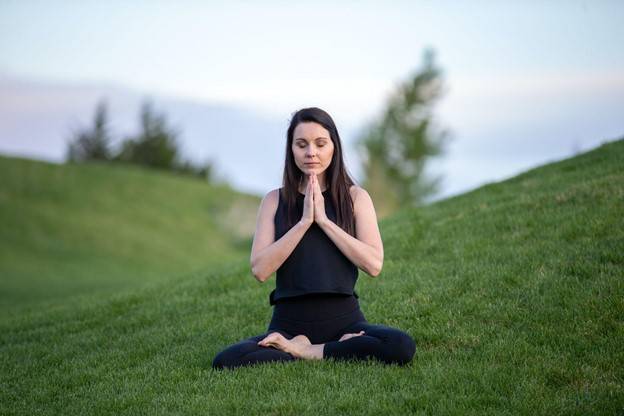
Jan 2022. This article is independently written by Shelby Golding. All opinions given are hers. Shelby has been certified as a personal trainer and nutritional specialist since 2007. In 2008, she found her passion for writing about these topics and hasn't looked back.

5 Ways to Manage Chronic Stress
1. Focus on Sleep
- Set a regular bedtime and stick to it.
- Do not eat three hours before bed.
- Turn off your phone an hour and a half before you turn off the lights.
- Take a break from drinking coffee and alcohol.
- Use a sleep supplement like magnesium which regulates sleep and helps you relax.
- Listen to a nighttime calming meditation to slow restless thoughts.
2. Ask for Support
3. Meditation

- Loving-kindness
- Mindfulness
- Chakra
- Guided
- Mantra
Relaxation Techniques
What works for one person may not work for someone else. You may already have an idea of what type of relaxation is best suited to you, but in case you need help, here are a few common relaxation techniques.
- Autogenic training
- Biofeedback
- EFT tapping
- Deep breathing
- Guided imagery
- Progressive muscle relaxation
- Self-hypnosis
- Listening to music
- Painting
Exercise
Chronic Stress






